What Are DNA Tests and Are They Useful? Understanding Genetic Testing
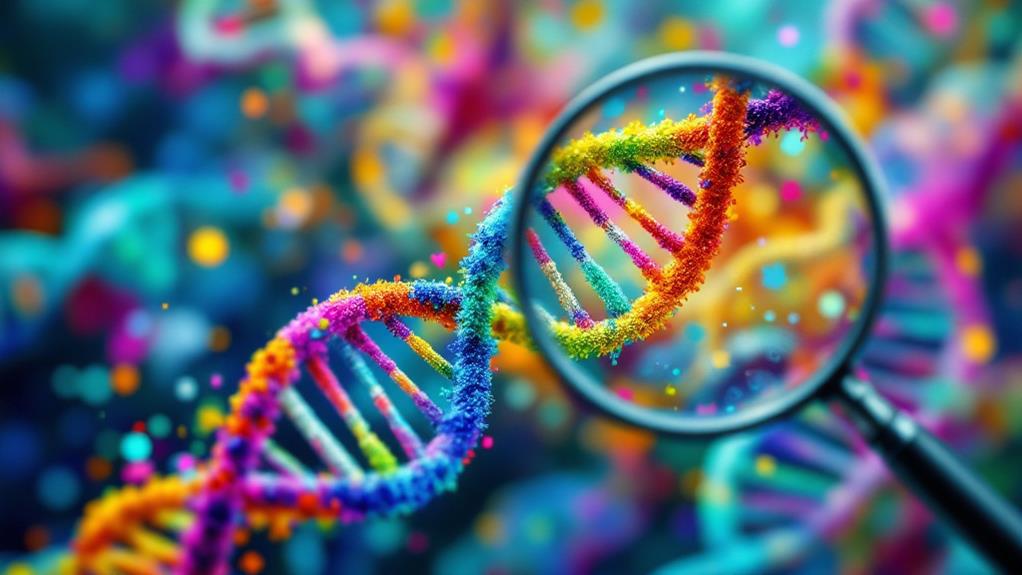
DNA tests examine your genetic material to uncover unique sequences that reveal health risks, ancestry, and your hereditary traits. They're useful for understanding potential health issues, forming personalized lifestyle plans, and connecting with your heritage. There are numerous types, like paternity tests for confirming relationships and whole genome sequencing for an in-depth look at your genetic code. Accuracy is generally high but depends on the lab's standards. Besides health insights, the tests raise privacy considerations, as your genetic data must be secured. Consider these elements carefully as you investigate the fascinating world of genetic testing further.
Understanding DNA Testing
DNA testing, often visualized as a complex scientific procedure, is actually a fascinating tool that reveals the blueprint of life itself. By analyzing your DNA, you can uncover insights about your genetic variation, which is fundamentally the differences in your DNA sequence compared to others. This genetic variation is what makes you unique and can provide valuable information about your health, ancestry, and even predispositions to certain conditions.
When you engage in DNA testing, you're not just peering into the intricate world of your genes, but also gaining a deeper understanding of hereditary conditions that may affect you or your family. These conditions are passed down through generations, and knowing your genetic predispositions can empower you to make informed decisions about your health and lifestyle. DNA testing can reveal if you carry genes linked to diseases like cystic fibrosis or sickle cell anemia, allowing you to take proactive steps in managing your health.
Types of DNA Tests
In the present rapidly advancing world, understanding the different types of DNA tests available can empower you to make informed choices about your genetic exploration. Regardless of your curiosity about your ethnic background or need answers about potential health predispositions, DNA tests offer a variety of insights. Paternity testing is a common use of DNA analysis, providing clarity on familial relationships. Forensic analysis utilizes DNA to solve crimes, identifying suspects or victims with precision.
If you're concerned about genetic disorders, carrier screening can determine if you carry genes for certain conditions. This knowledge is essential for family planning. For those delving into genealogical research, mitochondrial DNA and Y DNA testing reveal ancestral lines, offering a glimpse into your family's history. These tests trace maternal and paternal lineages, respectively, painting a broader picture of your ethnic background.
Whole genome sequencing is the most all-encompassing test, mapping nearly all of your genetic code. This test can uncover a wide range of health predispositions, offering a detailed view of your genetic makeup. With these varied tests, you can initiate an exploration of self-discovery, armed with the power of genetic knowledge.
How DNA Tests Work
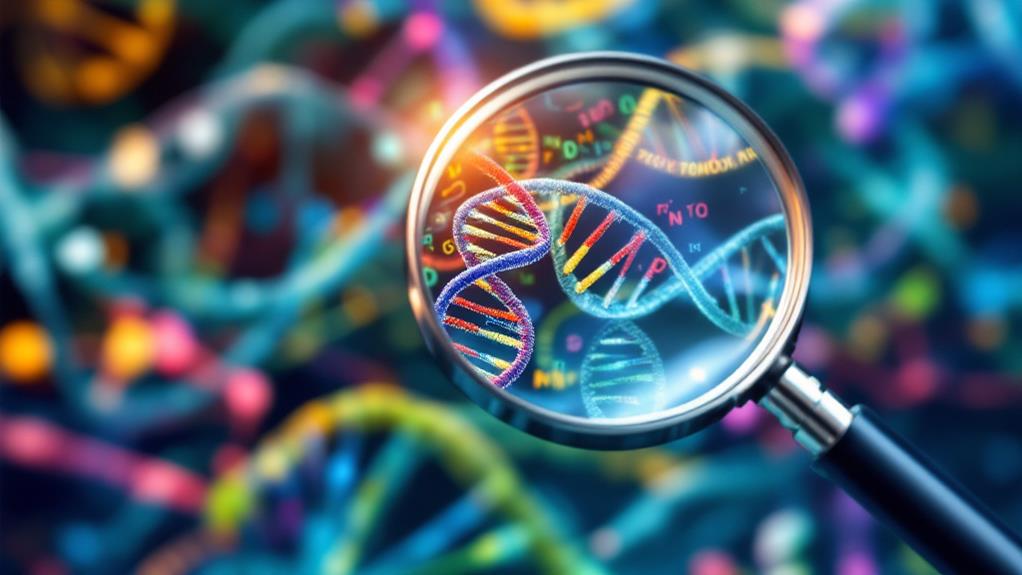
Understanding the mechanics of genetic testing can demystify the process and help you appreciate the technology behind it. DNA tests usually begin with a simple sample collection, like a swab from the inside of your cheek or a small blood sample. Once collected, your sample goes to a specialized laboratory where skilled technicians use advanced laboratory techniques to extract DNA from the cells.
The next vital step is genetic sequencing, a process that reads the specific order of nucleotides in your DNA. This sequence acts like a unique barcode, revealing your genetic blueprint. Technicians utilize high-tech machines and software to accurately determine this sequence. The data derived from genetic sequencing is then compared to known genetic markers in databases, allowing for the analysis of diverse genetic traits.
Throughout this process, the precision of laboratory techniques guarantees the accuracy and reliability of your results. Each step, from sample handling to sequencing, is carefully controlled to maintain the integrity of your genetic information. By understanding how DNA tests work, you'll gain insight into how these tests can help uncover fascinating details about your genetic makeup and ancestry.
Health Insights From DNA
Through genetic testing, you can reveal vital health insights that may be significant for your well-being and future medical decisions. By analyzing your DNA, you can identify potential health risks and genetic predispositions to certain diseases. This information empowers you to take proactive steps in disease prevention, tailored to your unique genetic makeup. For example, if you find a predisposition to a hereditary condition, you can discuss personalized medicine options with your healthcare provider to better manage or prevent the onset of the disease.
Furthermore, understanding your genetic profile helps you make informed decisions about lifestyle factors, such as diet and exercise, that can influence your comprehensive health. These wellness insights enable you to optimize your daily habits, aiming for a healthier lifestyle that aligns with your genetic tendencies.
Additionally, genetic testing can guide you in exploring effective treatment options if you're already managing a health condition. By knowing which medications or therapies are most likely to work for you, based on your genetic information, you can achieve better health outcomes. Embracing this personalized approach supports a more targeted and efficient healthcare strategy, ultimately enhancing your quality of life.
Ancestry and Heritage Analysis
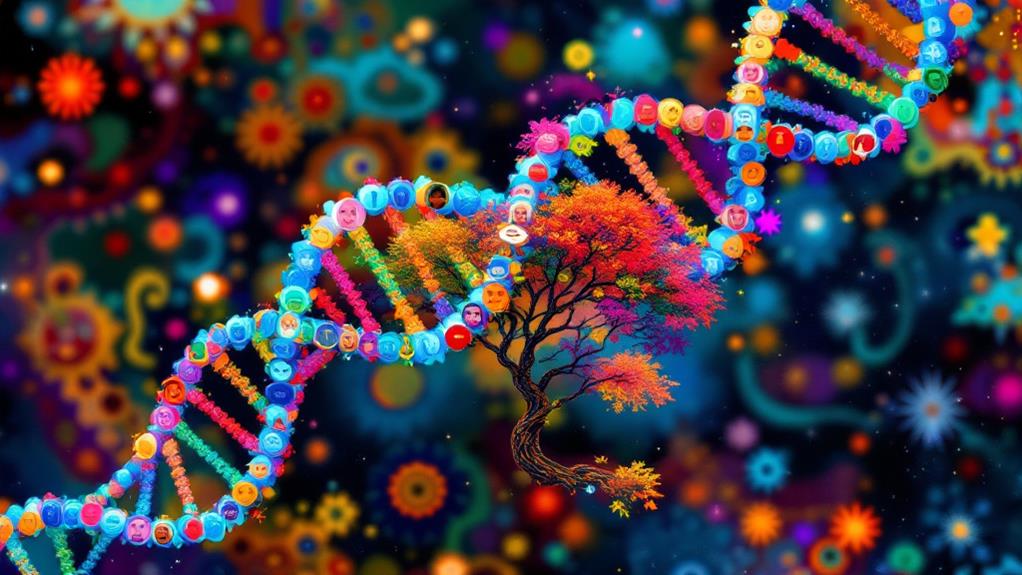
Revealing one's ancestry through genetic testing opens a window into your family's past, disclosing the rich tapestry of your heritage. By analyzing your DNA, you can unveil family connections that may have been lost or unknown, giving you a deeper understanding of your cultural identity. This heritage exploration allows you to trace your lineage back through generations, providing insight into the ethnic origins of your ancestors.
Genetic diversity within your DNA reflects the historical context of your family's ancestral migration patterns. You might realize that your forebears traversed continents, contributing to the rich diversity you carry within your genetic makeup today. This knowledge not only connects you to the past but also enriches your appreciation of the present.
Understanding your ethnic origins can be a meaningful expedition, helping you connect with traditions and stories that shape your identity. Regardless of whether you're just curious about your roots or seeking to fill in gaps in your family history, ancestry and heritage analysis through genetic testing provides a unique opportunity to piece together the puzzle of your origins. By engaging in this exploration, you gain a broader perspective on the interconnectedness of human history and your place within it.
Traits and Genetic Markers
Genetic testing reveals specific traits and genetic markers that provide fascinating insights into your biological makeup. By examining these markers, you can understand trait inheritance and how hereditary traits are passed down through generations. This process involves marker identification, which helps pinpoint specific genes linked to your unique characteristics.
You might be surprised to learn about your genetic predisposition to certain traits or conditions. For instance, you could uncover why you have a particular eye color or why you're more inclined to certain habits. These findings are linked to phenotypic expression, which shows how genes manifest in observable traits.
Understanding trait variation is essential, as it highlights the differences between individuals even within the same family. This diversity stems from genetic diversity, where a range of gene combinations results in unique trait expressions. Gene expression plays a significant role here, affecting how your traits develop over time.
Accuracy of DNA Tests
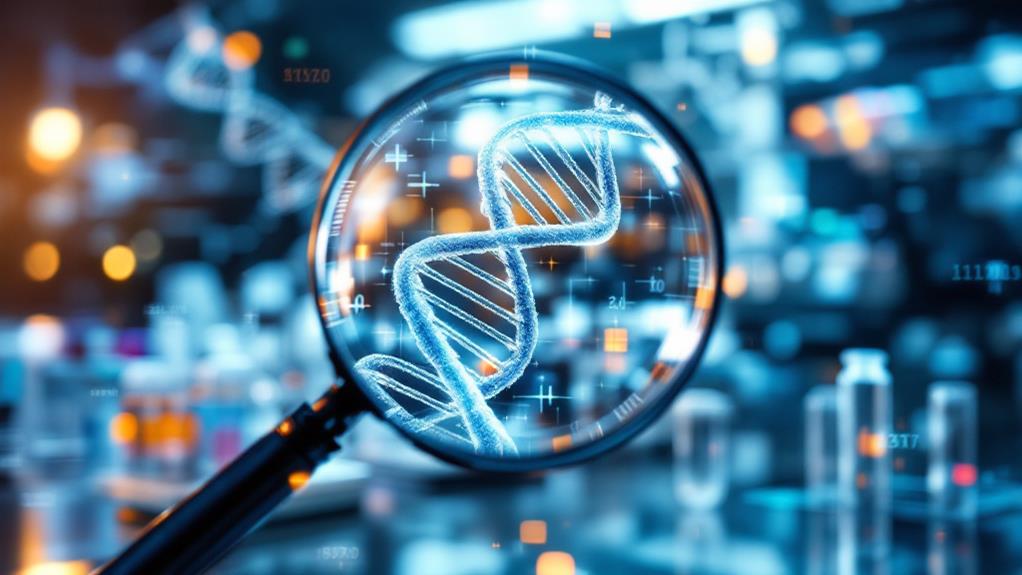
When evaluating the accuracy of DNA tests, it's vital to understand that not all tests are created equal. Test reliability varies greatly, and several factors can influence the results you receive. For starters, error rates can differ depending on the lab's validation processes and the testing standards they follow. Accredited labs tend to have more rigorous procedures, which can improve accuracy. However, even the best labs face challenges.
Sample contamination is a common issue that can skew results, leading to inaccurate outcomes. Furthermore, result variability can occur due to differences in testing technology and methods. This variability may contribute to consumer misconceptions, as people might not understand why different tests yield different results.
Another point to keep in mind is interpretation challenges. Even with accurate data, interpreting genetic information correctly requires expertise. Misinterpretation can result from testing limitations, as not all genetic variations are well understood.
Lastly, it's crucial to verify that the testing company is properly accredited and follows industry standards. This accreditation acts as a safeguard against errors and guarantees the lab has undergone thorough evaluations. Keeping these factors in mind will help you navigate the complex landscape of DNA testing with a clearer perspective.
Privacy and Ethical Concerns
While accuracy remains a significant aspect of DNA testing, understanding the implications extends beyond technical reliability to include privacy and ethical concerns. You must consider how your genetic data is stored and who has access to it. Data security is vital, as breaches could lead to unauthorized use of your genetic information. Always verify that the testing company follows strict privacy regulations and provides transparency about how your data is handled.
Informed consent is another essential factor. Before submitting a DNA sample, you should fully understand what you're agreeing to and how your data might be used. Without proper consent, companies could misuse your information, leading to genetic discrimination in areas like employment or insurance.
The ethical implications also touch on ownership rights. Who truly owns your genetic data once it's submitted to a testing company? This question becomes even more complex when considering familial relationships, as your genetic information might inadvertently reveal sensitive family secrets, affecting your loved ones.
Benefits of Genetic Testing
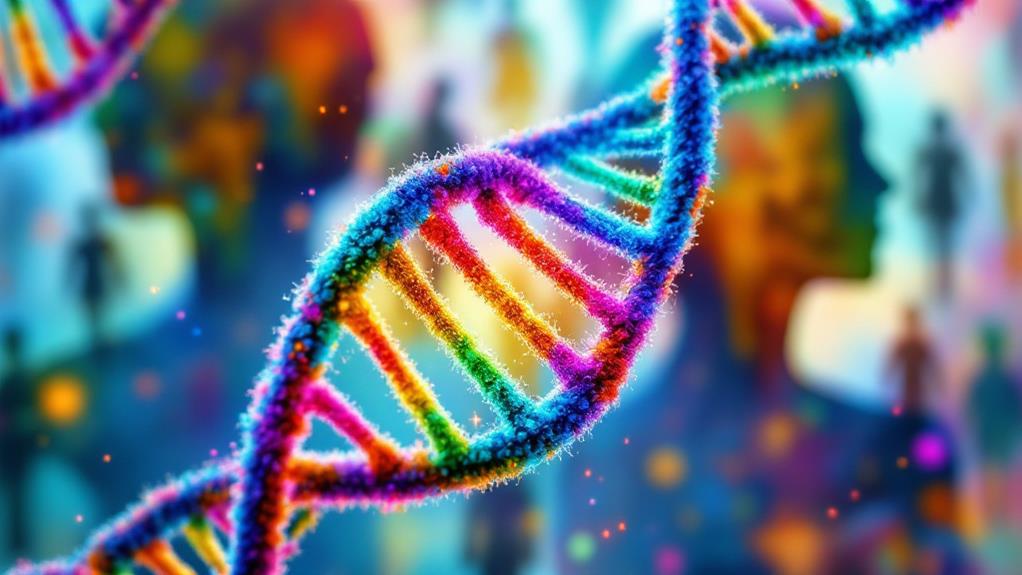
Release the potential of genetic testing to transform your understanding of health and ancestry. By diving into your DNA, you can uncover essential information that aids in disease prevention. Imagine being armed with knowledge about your genetic predispositions, allowing you to make informed lifestyle recommendations tailored just for you. Personalized medicine becomes a reality as doctors use this data to determine the best treatment paths and medications for you through pharmacogenomics.
Genetic counseling plays a significant role, helping you interpret test results and understand the implications for your health. It's not just about you; your family can benefit too. With family planning, you can assess any risks of passing hereditary conditions to future generations. Carrier testing can reveal if you carry genes for specific diseases, enabling informed decisions about having children.
Wellness insights gained from genetic testing can guide you in making changes that improve your quality of life. Regardless of whether it's optimizing your diet or exercise routine, the information you gain is invaluable. Seize the opportunity to learn more about yourself and take proactive steps toward a healthier, more informed future.
Considerations Before Testing
Before you decide to undergo genetic testing, it's vital to weigh several key considerations. Initially, think about your emotional readiness. Genetic testing can reveal unexpected information that might affect you and your family. Are you prepared to handle potential outcomes, both positive and negative? Evaluating your emotional readiness is fundamental to guarantee you're not caught off guard by the results.
Second, confirm you've provided informed consent. This involves understanding the test's purpose, its potential consequences, and the privacy of your genetic information. Informed consent is more than just signing a document; it's about being fully aware of what you're agreeing to. Make certain you ask questions and seek clarification if anything is unclear.
Finally, consider the impact of your results on family dynamics. Sharing genetic information with relatives can be sensitive. It's significant to think about how this information might affect not just you, but also your loved ones.
Here's a quick checklist:
- Emotional Readiness: Are you prepared to handle the outcomes?
- Informed Consent: Do you fully understand the test and its implications?
- Family Impact: How might your results affect your family?



